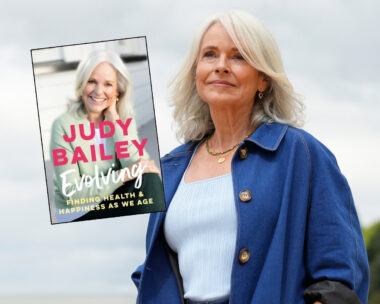Once, not so long ago, we simply cooked our meals and ate them. Nowadays, carefully curated versions of our eating lives are a familiar feature on Instagram and Facebook.
Still, it’s one thing to post shots of your latest attempt at an Ottolenghi or Nigella recipe, and quite another to turn it into the way you make a living.
New kids on the blog
Increasingly, foodies are making enough money from creating internet content to call it a job. They’re chopping, sautéing, baking and roasting their way to fame and fortune. And it doesn’t seem to matter how young you start.
YouTube channel CharlisCraftyKitchen generates an average of $188,000 a month for nine-year-old Queenslander Charli and her little sister Ashlee, who shoot tutorials on baking treats like cupcake marshmallow pops.
In Japan there’s an entire family of quirky decorative food creators doing almost as well with their YouTube channel mosogourmet. Trailing behind these relative newbies is celebrity chef Jamie Oliver with earnings of $47,500 per month from his YouTube presence.
In New Zealand the financial rewards might be more modest; nevertheless there’s a growing number of mostly women who are parlaying their passion for cooking into a rewarding career.
Auckland’s Helen Jackson, 52, was an early adopter. When she started foodlovers.co.nz about 17 years ago it was one of the first New Zealand websites.
“A friend built it for me as a thank you for having him to stay,” she says. “At the time I didn’t really know what a website was for. But it was like someone had given me a baby. I kept feeding it and it kept growing.”
Jackson already had a background in food. A former primary school teacher, she started out baking desserts for a café in Paekakariki and had a stint as TV cook Jo Seagar’s assistant. Foodlovers began as an online collection of useful recipes for people needing mealtime inspiration and is now a vibrant community. Some of her more faithful followers have been visiting its chat rooms since the very start.
“Over the years they’ve got to know each other and now they catch up and have Foodlovers lunches,” says Jackson.
But does it pay?
Even after all this time, and with 140,000 unique visitors a month, advertising and sponsored content on the site provides a far from reliable income.
“A bad month might mean I earn zero and the best I’ve had was about $13,000. And there are costs such as paying for photography, video, hosting fees and someone to do technical changes.
“So even though I love Foodlovers and spend several hours a day working on it, I wouldn’t want to be keeping my family on what I make from the website,” says Jackson, who also writes for Food magazine, develops recipes for companies and hosts a weekly show on Radio Live.

Trudi Nelson left a stressful career to blog about food – a passion since childhood.
It helps to have a support person with the skills you lack. Jackson’s husband Ed is an accountant. Meanwhile Trudi Nelson of fresh.co.nz feels lucky to be married to a man who takes care of all her financial negotiations.
“I can’t be in the meetings where they discuss money,” she says. “I don’t know how to put a value on what I do. My passion is food.”
Eleven years ago Nelson, 43, was a stressed-out career woman juggling her job in marketing with raising a six-year-old son.
“I was burnt out, coming home and crying into my glass of wine,” she recalls.
“My husband Mark said to me, ‘what’s your passion?’ and it had always been food, ever since I was about six and was given a cook-book with a little matching apron. So I decided to pull out all the recipes I had from over the years and put them online. Pretty much whatever I cooked each night I’d photograph and upload.”

The blog that grew
It was a while before she began to monetise the site, then called Fresh in the Kitchen. Partnerships with food companies along with ads began bringing in monthly sums, as little as $120 or as much as $1200.
Now with 49,000 average unique browsers a month, Nelson has reached earnings of some $100,000 a year from Fresh and related activities like cooking demos.
She and Mark have bought a commercial warehouse space in central Auckland where they’ll live and build a studio, so they can focus on expanding the business.

Delaney Mes gave up a legal career to build her blog.
For love or money?
Then there are the freebies. Invitations to six-course degustation dinners, goodie bags of food, wine and kitchen equipment arriving on the doorstep, all gifts from PR firms hoping online food writers and bloggers – or ‘influencers’ as they’re now known – will write about them, or at least post an image on social media. All very nice; however, this free stuff doesn’t pay the bills. Nor will it necessarily enhance what you’re offering your followers.
“I only write about things I honestly love,” says Delaney Mes. “If I Instagrammed everything I’m sent no one would follow me because it’d be this horrible bought thing.”
Mes, 31, is a former lawyer who began her blog Heartbreak Pie five-and-a-half years ago after a break-up with a boyfriend.
“I wrote the heartbreak in with the cooking,” she says. “I’d never be that open now but when I started I didn’t think anyone was going to read it.”
In retrospect she can see her timing was perfect.
“I was able to establish myself when it wasn’t a saturated market.”
Chucking in her legal job, Mes moved from Wellington to Auckland and used her blog as a springboard for anything food-related – from catering private parties to managing events, cooking on the Good Morning show and writing for the print media. For a while she even did some nannying to stay afloat.
“It’s a financial rollercoaster,” she admits.
Yet she’s resisting the idea of monetising her blog (now rebranded as delaneymes.com as she is well over her heartbreak) and has only produced a couple of paid-for posts.
“Part of me feels people starting blogs to make money is a little bit sad because in the early days it was so collegial and we did it because we loved it,” she says.

Earning trust
Blogging is no longer shiny and new. It has become how brands try to get attention and the supportive world Mes recalls, when bloggers read each other’s work, met up in person, and became firm friends has been swept aside by commercialism. Instagram is another game changer.
“It has eclipsed what blogging used to be. Now all you need is a phone and a similar aesthetic through all your pictures. People used to be happy to spend five or 10 minutes reading a long post; now we’re all on our phones scrolling and getting an instant fix,” says Mes.
One thing she’s unsure about is whether bloggers ought to make it clear when they have been paid for a product mention.
“That’s a really contentious point,” she says.
Often it is obvious a product is being advertised and increasingly Instagrammers are using #ad on posts just to make it crystal clear. But not all ‘influencers’ are so upfront about their brand relationships.
Top Auckland PR woman Deborah Pead advises caution when it comes to commercialising an online presence.
“Going for a pay-and-display model alienates an audience who have come to you for genuine insights,” she points out. “Consumers aren’t gullible. They’ll know you’ve been paid to write good things.”
Pead’s firm Pead PR is approached by five to six new bloggers a week across categories including food, beauty, fashion, technology and entertainment. Mostly they stick to working with a select group they have identified as being at the top of their field. Brands they represent include My Food Bag and NZ King Salmon. And yes, they’ll pay bloggers for what Pead describes as “bespoke pieces of work dedicated to the brand”.
“It could be an Instagram post or a video of them using the product and would range from $200 to $2000 depending on what we were asking them to do,” she says. “What we’re looking for is a long-term connection with genuine brand advocates; those bloggers who have strong identities and are known for a certain approach and style. Some are so prolific… selling everything… if they become guns for hire there is no value in that for a brand.”
The PR puzzle
Bloggers and brands are still finding the right way to work with each other, she says, but Pead believes staying faithful to an area of expertise is key. Bloggers who stray beyond a narrow focus tend to use words like ‘lifestyle’ and ‘parenting’ as licence.
Leonie Barlow’s successful fashion and beauty blog The Style Insider also embraces everything from food to technology. Vanessa Rehm’s The Bubbalino Kitchen goes far beyond cupcakes to cover makeup, fashion, homewares and kids’ essentials – and yes, it is bristling with brand names.
Another giveaway that posts are sponsored is a brand will suddenly crop up everywhere. When half the food bloggers in the country are baking cakes with the same type of sugar or yoghurt, and the packaging is prominently displayed in shots of the finished treats, you can bet your bottom dollar cash has changed hands.

Kelly Gibney only has paid links with artisan brands who share her healthy eating ethos.
Auckland blogger Kelly Gibney, 35, says she only has paid relationships with a few artisan brands that share her healthy food ethic. She started her blog Bonnie Delicious as a new mum (daughter Bonnie is now three-and-a-half) and quickly became part of a new wave of clean-eaters satisfying our online appetite for green smoothies, raw chocolate and spiralised courgettes.
“I’d worked in hospitality in Melbourne and New York for years and always been nutty about food,” she says. “I love to eat healthily but if it’s not delicious I’m not interested.”
An empire of one
At home with a baby she had an urge to do something creative and decided she’d like to cook and document what she made.
“At first I worried I wasn’t good enough. Then I met a few food bloggers and realised they were just like me.”
Gibney also has photography training so now combines her blog with styling and shooting images for other people, as well as recipe development and magazine writing. Plus she’s started work on her first cookbook.
“I’m learning to be business-savvy,” she says. “I’m ambitious. I’d like to be a Nigella or an Annabel Langbein. I’m thrilled this is what I do for a job. I can’t imagine doing anything else now.”
Gibney says she makes very little money from the blog itself; it’s the work opportunities it has opened up that have helped her translate a passion for food to earning a living.
“My blog is like the life support to my career – I wouldn’t have one without it,” she explains. “It’s a source of promotion for the other things I do. It’s how people see I can generate content and see the quality of my work before engaging with me. It’s helped me go from dreaming to doing.”
She describes her fast-growing business as “an empire of one”. She works mostly from home, doing everything herself, and it can mean long hours – it takes an entire day for her to develop a single recipe idea, testing it several times, then styling and shooting it.

Join the club
Bloggers who struggle with the range of skills required to turn a hobby into a career can now sign up to be looked after by a specialist agency. Bloggers Club will do everything from talent manage, act as an agent pitching bloggers – or “creatives” as they prefer to call them – to be part of social influencer marketing campaigns for brands such as Yummy Apples and Tim Tams, plus invoice and chase debts. The agency has only been around for two years.
“We paid over 110 different bloggers last year,” says general manager Rochelle Shaw. “It could be anything from $150 up to $15,000 for a YouTube video. As long as they’re making a great piece of content it doesn’t matter that it’s sponsored. The important thing is they’re being true to their voice and have an engaged audience.”
And engagement is about more than just amassing followers, likes and comments. To be a true influencer you need to show that the people you reach are spending time on the page, reading your words, and expressing the intention to trial a featured product or recipe.
Age is no obstacle
If you’re never too young to start living in the digital world, it seems you’re never too old either. At 58, Astar has more than 39,000 subscribers to her YouTube channel Astar’s Place and has recently launched a second paid channel.
She used to present cooking and craft slots on TV show Good Morning but a few years back she smelled change in the air. Her son, Slade Young, had explained young people were watching things on their phones and laptops rather than traditional TV and that YouTube was the way to reach them.
“He said, ‘You know what Mum, you could do it yourself and it could reach the world’, so that’s how we started,” says Astar.
Bit by bit she invested in equipment then signed up a producer and cameraman to help her develop how-to segments covering craft, floristry, food, sewing and handy home tips.
“Jams, pickles and preserves are the most popular slot and my biggest viewership is in Russia,” says Astar, who has about 150 clips up on YouTube and gets paid revenue from the advertising around them.
So far earning up to $1500 a month means she’s only covering her costs, but with the Good Morning show now off-screen, her goal is to be full-time on Astar’s Place.
“I see it as a slow-burner and it’s continuously building. Hopefully I can do this for years and the older I get the more credibility I’ll have,” she says.
No one knows what the future holds for professional bloggers and YouTubers. One says making a living from sponsored Instagram posts is risky since you don’t own the platform or have any control over how it might develop. Still Delaney Mes says she feels empowered rather than daunted by what the digital world offers.
She is flirting with the idea of another monetised blog, and is thinking about ways to combine her passion for travel, her interest in making filmed content and her love of good writing.
“It feels as though if I have an idea then I can do it,” she says. “All I need is the time.”
Words: Nicky Pellegrino




